Ariana Carruth's Blog
November 23, 2019
When Meanness Strikes! A guide to understanding and dealing with mean people.
How to cope when you are busy spreading kindness while others are busy spreading meanness—pulling you from your good place and into a vortex of negativity.
A guide to understanding and dealing with mean people.
Ok, let’s get down and dirty.
When you are trying to stay in your lane of optimism, focused on your goals and the ways in which you can improve yourself; it feels like an insurmountable amount of pain when you get sideswiped by a Mack truck of negativity.
And even though we know (because we do!) that meanness is more about the person dishing it out than anything to do with us, it hurts.
It feels cruel.
Unnecessary.
It hurts even more when it involves someone that you trusted.
For someone that spends a lot of time nurturing relationships, people, and generating acts of kindness and generosity; it can feel even more discouraging.
The secret to spreading kindness though is the understanding that it is not spread with the social contract of reciprocity.
Don’t get me wrong, it would feel so fulfilling and wonderful if we received as much as we give, but that isn’t why we spread kindness to others.
That said, when meanness is what is returned from continued generosity and kindness, it feels like a punch in the gut and an insult to our good will.
So how can we cope? What steps can we take to combat the inevitability of someone less willing to work on themselves sucking us into their vortex of negativity?
1. Breathe
This is hard. You’ve just had the wind knocked out of you but try to take a moment and breathe. Deeply. Fully. Embrace your positivity. Embrace your center. Breathe in the goodness and exhale the negativity.
2. Listen
Don’t speak, listen. Listen to the meanness. Listen to the delivery. Listen to the message. Is there something we can learn? Is there truth in any of it? Listen to the hurt in the person spreading the meanness, because trust me, mean people are the ones hurting the most in life. It may be painful, it may all be wickedly untrue. It may be out of jealously. Spite. But listen.
3. Read in between the lines.
Listen for what isn’t said. There is often more to the when, why, how of the delivery than the message itself. Are you suddenly an unwilling passenger to a greater strategy at play? Is this person on a figurative suicide mission? If necessary (and only if) is there anything that can be verified? Is there legitimacy? Is there a reason why this person wants to hurt you and fracture the relationships you may keep with those in similar circles? Is there a reason why they want you to distrust those you trust?
4. Exhale & move on. With kindness.
The spread of meanness will perpetuate with meanness. We can only control how we react. Continue to spread kindness, even in return to mean spirited individuals. Perform acts of goodwill. Hold onto your center, your belief system, your generosity, and stay the course. Exhale and delete all of the negativity and meanness spewed to bring you down.
It hurts to care for people that do not reciprocate the kindness, loyalty, or goodwill, but I promise, it is more about them than it is about you. Insecure people cannot let people in. They are always on guard. They are always threatened. They are always willing, ready, and able to throw you into oncoming traffic. They may even gain your trust. You may even have a weak spot for them, because you care so deeply. At their core, at least for now, they are too insecure to trust and to be trusted.
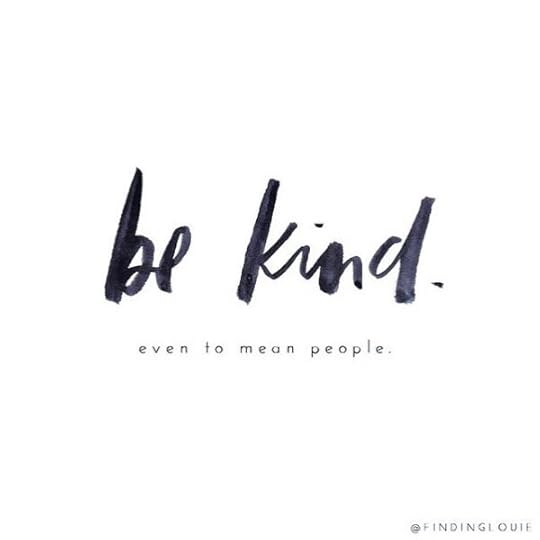
So, love. Show kindness. Lift up. And let go of your own hurt. Let go of any control. Let go of what influence they may have on how others will feel about you. Trust that spreading kindness is always the right action. Trust that, in time, the right people with the best intentions will see you, for you—and that they will see others for who they are, too. Do your best. Live courageously enough to dive into your shortcomings to better shape who you are and let go of others that are not willing or able to work on themselves.
Spread kindness. Always.
October 20, 2019
(continued. . .) My List of Three
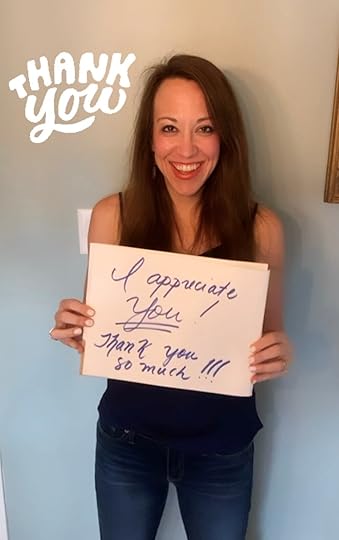
1. Can we get a collective *high five* for those that volunteer at our schools? PTO/PTA is one of those thankless (and unpaid) jobs that can literally consume a person’s week. There are parents that dedicate tens of hours of their “free time” each day/week to fill in the financial and resource gaps in our public-school system. There is not a weekday that goes by that I don’t see some considerable contribution by our elementary PTO organization. I’ve been astounded and proud by their level of marketing, content driven social media presence, fundraising ability, and their undeniable and infectious passion and enthusiasm to build a better community for our children. I am so grateful for this group of parents and our community owes them so much.
2. This might get an eyeroll because it is gushy, but it is nothing but the truth. My husband is literally *the* rock of this family. Having a child with severe disabilities is physically, emotionally and mentally demanding. He never complains. He helps in the morning before he goes to work; he helps in the evenings after work. He helps with the significant physical demands of lifting a non-ambulatory 100-pound child, including diaper changes. He helps with dinner (actually, he is honestly the chef of the household). He helps around the house. He is the math tutor on-call. He is my emotional sounding board. He gets me (and still loves me) before I’ve had my coffee or my morning workout. He is the ideal father to three and a true partner. And mostly, I suck at telling him enough that he means the world to me; and that I’m deeply and forever grateful for him.
3. My daughter’s bus driver. I’ve already been thinking of ways in which I can show my appreciation, but while I’ve been thinking, I should have been doing. My daughter’s morning bus driver is one of the most considerate people I’ve ever encountered. Knowing that I work (and that I’m overwhelmingly stressed every workday by the demands to leave for the office as early as feasibly possible) she comes to our driveway every day with a reassuring smile that it will be ok. She greets me with encouragement. She attempts to deescalate my stress with compassion and empathy of what it is like to be a working mom. She works hard (within her power of influence) to have the bus route tighten up on the schedule so that she can arrive earlier (so I can get to work earlier). And most days, she takes my daughter in her wheelchair and gets her on the bus by herself while I go ahead and drive to the office, because again, she knows I’m stressed, and she has the influence to help.
It’s Always the Little Things: The Power of Positive Affirmation
When was the last time you felt appreciated?
When was the last time you expressed appreciation?

Increasingly, I find myself a witness to mass exodus (either physically, mentally or both) from organizations, relationships, etc., and seemingly the common driving force of the exodus is the simplest to remedy—a lack of appreciation and remuneration for someone’s time, commitment, and contribution.
Whether you serve on the PTO, volunteer with a charity, clock in on a 9-5, or are a wife, mother, father, or husband; there is a good chance that you’ve felt underappreciated and possibly even mistreated or undervalued.
We often hear that everyone is replaceable and while that is mostly true, the cost of replacement is habitually and grossly overlooked.
In the workplace, it takes time to fully train and immerse someone into the intricacies of the job and into the scope of specific and historical professional knowledge confined to the organization. Additionally, it takes time for any individual new to an organization to develop relationships with internal stakeholders that are vital to the efficiency needed to drive forward projects and profits. A revolving door of talent is a constant one-step forward, two-step back approach to business, and the end-result is always detrimental to the progress, future retention, and invariably the ultimate success of a company.
The same detrimental effect is relevant in volunteer organizations; perhaps to an even greater extent given the unfavorable challenge of recruiting replacement volunteers for unpaid positions.
Friendships, marriages and parent-child relationships hold the highest stakes. Notably, the cost of divorce is monetarily expensive, but moreover is the profound emotional cost of losing those from your life that you have loved and cherished.
So how do we become agents of change in the grinding cogwheel of a society that is motivated by self? How do we rewrite the script? How can we positively change the environment in which we live and work, and how do we shape our relationships with those closest to us?
In the business world, those with power and influence are seated with the most privilege to enact quick and immediate change that will reverberate and multiple. Leaders must be compelled to take a hard look within their own leadership, organizations, and spheres of influence to evaluate how to better embrace the humanity of business. Much too often, bureaucracy (and a lack of empathy) stands as a barrier to extending genuine appreciation—appreciation that is alarmingly and devastatingly dismissed as a vital factor in meeting and exceeding the goals of an organization. Simple monetarily-free gestures of appreciation for a job well done (and for the actuality of experience and scope of work) have been noted to change the narrative and retention factor 180 degrees.
But what if we aren’t seated executives or human resource management?
How can we enact change?
And, what about outside of the business world altogether? Do we hold positions of power in our own spheres of influence?
The answer is yes! And we must become change agents!
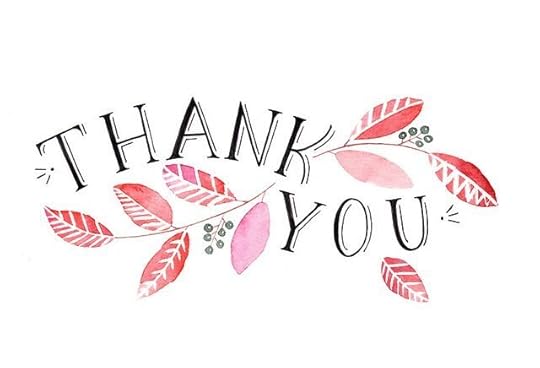
Take a moment to think of all those that have influenced your life in the last week. Now take a moment and think of how many times you expressed an appreciation, sent a thank you, or used your influence to ensure this person was remunerated in some way for their contribution.
How does your level of expressed appreciation rate against their level of contribution?
Now, dig a little deeper and ask yourself, if roles were reversed, would you feel appreciated by the gestures (or lack thereof) of appreciation?
Would you feel fulfilled? Appreciated?
Or would you feel used and resentful—and maybe looking for an exit?
With the raw and honest emotions tapped of our own shortcomings, let’s take a collective moment to now think of three ways in which we can express appreciation in our sphere of influence within the next week. Or take a moment and think of three people or groups in which you feel grateful to have in your life that you may often take for granted. #agentofchange
Be the change you want to see.
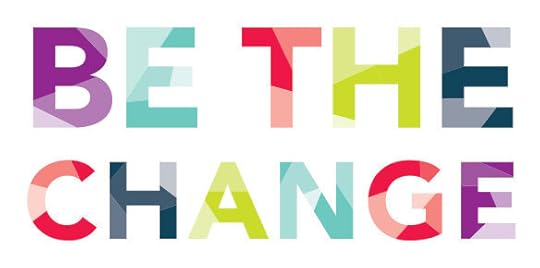
Click here for my list of top three.
September 28, 2019
Embrace the Messy Complicated You
Now is the time.
Now is the time to embrace the messy, complicated you and to dive head first into indulgent self-love.
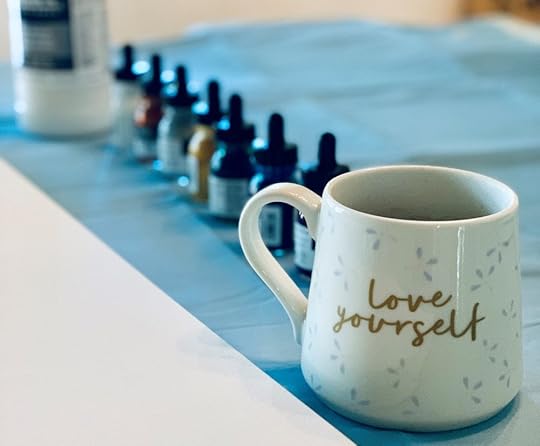
What I’ve learned most in the last four years is that it is never too late for almost anything, but that big life changes bring forth a set of unruly complexities and dichotomies—pulling us back and forth in between the old and the new.
I’m one of those people that doesn’t like stagnancy. The dichotomy of that truth, however, is that I also don’t like change—that I can’t control!
It’s a messy part of me that I must embrace. I need to be fueled with change that I control because for me, if I’m stagnant; I’m not growing, evolving, learning. This is a bit of a conundrum though to balance those emotions and needs with also feeling grateful for the here and now. Difficult truth. Difficult lesson.
Throw in that I want my life to be meaningful in how my days are spent and with the contributions I make to the universe; the change I must enact for greater growth get muddier and muddier.
Transitions for women, I believe, are notably challenging because we are often confronted with societal expectations that are not assigned to men. When I had my first child fifteen-plus years ago, I was fortunate enough to still satiate my ambitions outside of the home with a career I built with baby-on-hip, or rather, baby-on-boob.
I loved it. It was perfectly balanced for many years. Intellectually stimulated, challenged and fulfilled; I was able to build experience and a career in leadership throughout even the challenges of getting pregnant and giving birth to a medically fragile child. How amazing was that?
Life progressed, change was necessary, and my focus became contained inside the walls of my home in trying to conceive, stay pregnant, and then (after great loss, grief and recovery) relishing in every second I could spend with my children.
Becoming a full-time stay-at-home mom became my full-time job, my project of greatest meaning. Social media “memories” remind me frequently of those days that began with a full breakfast spread that segued into house cleaning, playdates, culture enriching child activities, volunteering, and a bountiful abundance of yoga pant wearing hours filled with massages, brunches, shopping, writing, painting, reading, coffee dates, etc.
The dichotomy not captured on social media was the growing feelings of boredom, frustration, displacement, isolation and obsessive nature of jumping from one project to another (let’s buy a new house, let me repaint the house, redesign the living room, revamp the gardens, become an obsessive runner & lose 50 pounds, write another book, get a Ph.D….).
Let me completely obsess over your career because I miss mine.
It was time for a change, of my own making.
Knowing the path that I had forged was one that was not retraceable, I focused on writing a new chapter that was decided on—well, nothing but—fate.
Having nothing to lose but everything to gain on a new search for meaning (so-to-speak), I put myself out in the universe (i.e. LinkedIn) and waited—for what I assumed would be six months but turned out to be only a few hours.
Lesson learned! You are more qualified than you think (even after spending the last few years changing diapers and organizing mimosa playdates, while only dabbling in consulting work), and you should not take the first offer from the first person…. even if you are consumed with excitement and desperation for change and are enthralled by the attention you profile is receiving in less than a week’s time.
In these situations, it’s best to take a step back and phone a friend, join a book club, finish that Ph.D…. or in my instance when I received the recruitment call… pick the paintbrush back up from the paint bucket and finish painting the house.
You are worth the right offer, the right organization, the right position.
Remember self-love. Remember the woman you were before you were defined by motherhood. Remember your talents. Remember your value.
And if you are so blessed, remember your choices.
Because mom-guilt is real, and it is even more real as a working mom.
Fast forward almost two years, and here I sit, embracing the messy me.
I’m now in a job that I love and one that better fits my years of experience. I’m still just as hungry for intellectual stimulation, challenge and ‘self-imposed’ change. I still love my family endlessly, but in there lies the difficult dichotomy that I have less time with them now than I did before I worked outside of the home. A greater complexity is often broached that, in the absence of intellectually challenging and engaging work, there is a risk of questioning if ‘this’ is all “worth it.”
Much of those questions are fed from the outside—society, friends, family, a spouse whom may feel your place is best at home or in the school car line. Much of that doubt also comes from your own mommy-guilt, and those moments where you are literally ordering an urgent school item on Amazon Prime Now with just a hope and a prayer it will arrive in time. Or when you’ve missed a school party because you had an important meeting scheduled on your calendar (and you don’t dare reveal your mom-card weakness in the workplace).
But you are a mom—a feeling mother and maybe a mother/woman hovering on middle age with one foot in a mommy-playdate world and another foot in a college-sendoff world. Or like me, with an entire middle placed firmly in the “mom of a special needs forever child” world.
The mommy-guilt can be intense. The days turn into months and the months turn into years. Your children are growing fast and becoming independent of you. You wonder day in and day out if your indulgences to have a career come at the cost of raising the best humans possible.
Maybe you are like me and you find yourself in bouts of longing for more time with them and in desperation you are spending a weekend at the art store in a newly purchased NASA t-shirt buying paint supplies and candy all to pander to your six-year-old with hopes that he will a) still find you relatable and b) still want to spend time with you—holding back the emotions that this little boy is the little miracle that you have hovered over with supermom protective energy since his conception after losing a child before him.
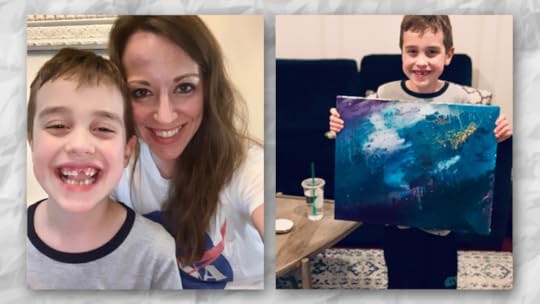
But you are also more than a mom—the dichotomy! You are also an accomplished woman with greater desires, ambitions and interests. You may even have talents outside of motherhood—gasp!
The messy me. The messy part of me that knows I need more from my days than any scenario but having a career can provide. The messy me that really loved jumping on a plane and flying 8,600 miles to a new-to-me world of the Middle East. The messy part of me that loves the mundane part of my job as much as the creative or as much as the most challenging. The part of me that—sure, misses yoga pants (wearing them now) and having endless time for personal and parent development—but that also really and truly needs the stimulation and collaboration that I receive from my current job.

So go forth and embrace the messy you. Whatever that means for you, in this chapter of your life.
Embrace your desires and a little more self-love.
Indulge.
Feed your hunger, whether that hunger is for more outside of the home or for more inside the home. You are worth it.


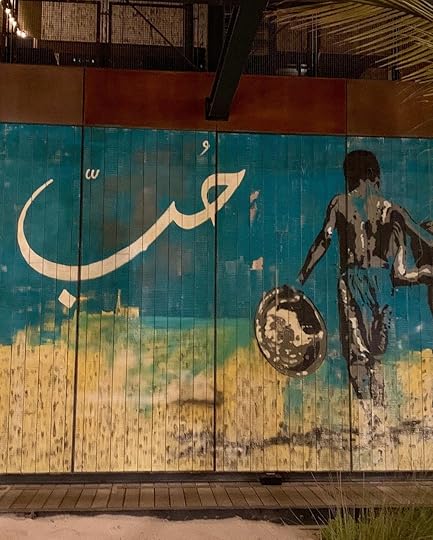







September 18, 2019
No GPS Coordinates Set: Our Continuous Voyage
As the artificially illuminated starry night fades with the carefully timed simulation of a natural sunrise, the sounds and aroma of breakfast service fill the cabin of this Boeing 777-300 bound for the infamous metropolis in the desert.

In the final stretch, our home in the sky is currently skirting around Baghdad—12 hours into our 8,534-mile journey from the Lone Star State to the UAE.
This flight has gratefully been uneventful. While I’m not afraid of flying per se, I admittedly felt a twinge of anxiety about boarding a cross Atlantic flight on Friday the 13th under a historic full moon.
The lackluster preamble to my epic inaugural trip to the Middle East, however, feels like an ironic dichotomy. Travel to the Middle East has pulled at my adventurous spirit for more than a decade and while the flight abroad feels blasé, my long-anticipated journey to the UAE can only be accurately expressed as “momentous”.
As curiously introspective as I find myself sitting in the quiet of a 14-hour flight, I must question when and where does a journey really begin and end?
Are we not always onboard one continuous voyage of self-discovery, self-love and an awareness for what we need to get and give during our time here on Earth?
Whether independently flying 37,000 ft above it “all”—the race, the expectations, the worry, the responsibilities, the complexities of the billions of cohabitating peoples and cultures—or, settled at home in our safe space with our loved ones; we are traveling in mind and spirit.
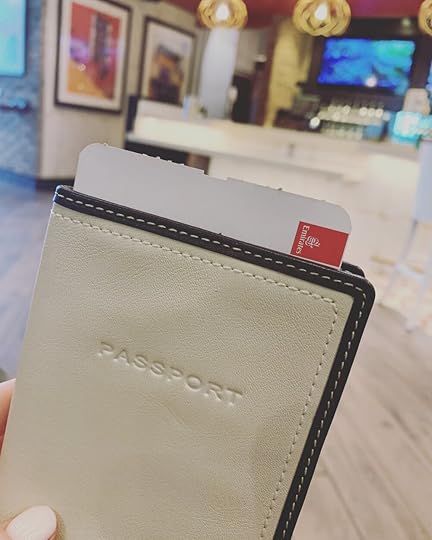
There is no doubt, that this trip abroad will be a memorable destination, both personally and professionally.
But the journey began before this itinerary to Dubai was booked, and it will continue.
No matter where you sit at this moment, embrace the present voyage that we are each gifted to be journeying—but often overlook. There is so much to learn, to embrace, to experience and to appreciate that has little to do with our geographical location. Learning to explore self-fulfillment, self-love and gratitude for all the cards stacked in one’s favor—and then to spread that love, kindness, and privilege to others—is where I need to take my journey.
August 29, 2019
Birthday Gifts
Pleading with God for one more day, one more week, one more moment that I feared would be a last is where I sat in a hospital bed twelve years ago. It was the eve of Avery’s birth, the eve of a long awaited and emotional reveal of monumental truths. I didn’t know how to grasp the finality of life that was long forecasted for the day, and even over the life changing precursory months of preparation; I hadn’t been able to find a way to say goodbye to a child.
Holding a strong exterior, I was internally paralyzed by fear and emotionally shattered from the unsettling unknowns and devasting diagnoses. I was grieving for the healthy child I wasn’t having and grieving the impending goodbyes to the baby that miraculously still wiggled inside me.
Every moment felt profound. Every fetal movement felt full of desperation—desperation for me to hang on, desperation for her to live, desperation for me to protect her.
The eve of Avery’s birthday is profoundly felt each consecutive year almost as much as the first. The anxiety returns. The cellular memories of the intense sorrow and the overwhelming joy return. The realization of the irony around the date and circumstances come out of hiding to remind me that the gifts and loses of life are not certain, nor do they follow a pattern.
It was eight years ago on Avery’s birthday that we lost a healthy baby—for no medical explanation. It was eight years, six months since we were confronted with the reality of what it feels like to say goodbye to a child—a healthy child born too early.
Most days, most years, I don’t think of these profound loses. They are locked away or more accurately overshadowed by the gifts in our lives. Today, however, was one of those days that I did think about them and the juxtaposition of those events to Avery’s survival. It was perhaps the way in which the wind tousled my hair or the way in which the sun touched my skin this afternoon, but on some unexplainable level my senses were awakened and sent back to those two days of profound loss and sadness.
It’s a beast of frustration when your soul urges you to remember something you’d prefer to forget, but those are the moments that should stop you in your tracks. . . even when it’s an unexpected moment of tears on your drive home from the office.
Avery’s birth, against all odds, is a miracle. Her birth, when I have profound difficulty carrying even healthy children, is spiritually awakening to the possibilities of life.
Avery has gifted us twelve wild years of fulfillment, gratitude, and indescribable spiritual and personal revelations. It goes without saying that we cannot imagine our lives without her, and I’m certain those that have spent time with Avery feel the same infectious effects of her untamable fortitude and zest for life.
Having an appreciation for the fragility of life—the ups and downs, the unexpected turns, the inconsistencies and the love in which is borne from those experiences is the panacea to all that ails.
As the eve turns into day, and we celebrate year twelve of this little girl with the best belly laugh on the planet; let your gift to her be that appreciation for life.
Happy Birthday, Avery!
To read about Avery’s birth, visit.
Click here to learn more about Diploid Triploid Mosaicsm.
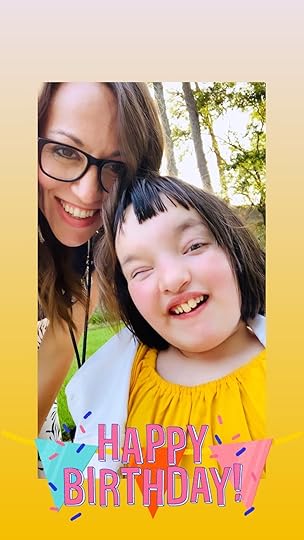
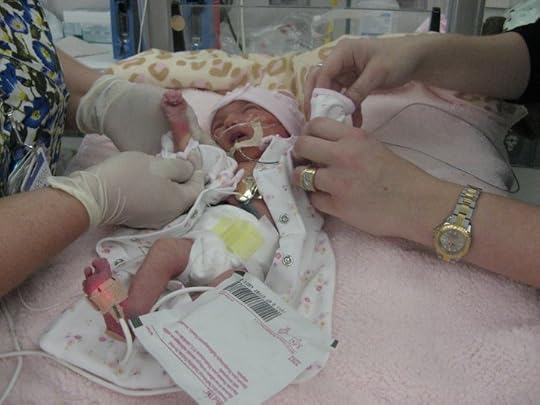



July 31, 2019
Reconciling Idealism with Validation for Reality
The water rushed from the manufactured waterfall with the same intensity as the feelings rushing to the forefront of my every thought as I stood under the high noon sun staring into the garden for answers. Taking a walk from the office had offered little solutions and with every attempt to process the information, I found myself desperate for a sounding board, an understanding friend, a subject matter expert to tell me right from wrong.
“I understand he can be an asshole,” I thought to myself—rationalizing the acceptance of bad behavior with a surrendered hope for meaningful change. I’m all too familiar with the problem; the rhetoric. I’ve tried to create positive change through heartfelt dialogue, pleas and even threats and punishment.
Embarrassment, anger, avoidance and sadness are all emotions that I have felt and expressed. Overwhelmingly though there is a sense of resignation as I attempt to reconcile idealism with the reality of the situation.
There are circumstances in life that you simply do not ask of which to be involved. They happen to you, and while we prefer to give a greater sense of meaning to these life events and even believe that part of our own higher being called upon them for a greater understanding; the hard reality is that life just happens. We are born into situations. We stumble into new chapters. Life evolves. What is most certain, however, is the power each of us wields in how we can process and deal with life’s lemons. As I wrote in my book, we have opportunities to learn to ‘love our afflictions’.
Those afflictions, however, still must be validated and truth be told they deserve an honest, at-times gut-wrenching validation that is not always sensitive, appropriate or selfless.
And that is the gray area in which I want to linger to ask the poignant question we should all be asking.
Is it okay to validate insensitive, yet honest, feelings of regret and dissatisfaction for the challenging situations in life that you didn’t sign up to experience?
A curious little girl with a wandering finger up her nose and a little brother’s ugly response of revulsion would kick start a long diatribe of well-intentioned advocacy via text from my care provider. My son, six-years-old, expressed anger, discontent, and frustration in having a sister with severe disabilities. “Eew, she’s picking her nose…. She’s gross…. I don’t want her as my sister… I hate her condition….”
It was an angry spew of hate and indifference that I am ashamed to admit came from one of my children. But it was also an honest expression of feelings from a little boy that is only beginning to reconcile the sibling dynamic of which he was born into and of his fledging recognition of social norms.
To his simplified thought process, this sister is different than other sisters and her behavior doesn’t reflect the social norms, nor does her behavior carry the same expectations that are expected of him. She is older, yet still wears diapers, doesn’t formulate speech in the same way, and isn’t largely able to reciprocate. He is both a little brother and somehow an older brother to the same sibling at the same time.
Compassion and understanding are automatically expected of him--without any validation for how challenging it is to be a sibling of a child with intellectual and physical disabilities. And some will say, why shouldn’t it? He has every advantage in life. He can walk, he can talk. He wasn’t born needing surgeries. He has a greater life expectancy. He will, for all intents and purposes, have a “typical” life without knowing the day-to-day-moment-to-moment challenges of pure survival.
Truth be told, however, as much as his sister didn’t ask to be born with her challenges; he also didn’t ask to be born in the shadows of “a miracle child”.
Neither of my “typical” children asked to be born in that long-casted shadow, and while one is full of grace, compassion, and understanding; one is simply still processing and loudly expressing his grief.
A child, such as our daughter with disabilities, is a gift that transcends boundaries of Heaven and Earth, but it is also a phenomenon that is a moth to a flame for public attention. With every eye on her, there are eyes turned away from two other children standing in her shadow. The Disney princess that turns to one, while turning away from the other. The stranger eager to give a treat to a child in a wheelchair but ignores the child pushing the wheelchair.
I can only surmise what it feels like to be a child in the constant shadows of a miracle sibling, all the while expected to carry the burden of future care provider, bearer of infinite compassion and selflessness--- with the expected void of validation of their personal struggles.
In an ideal world, we heal without feeling burden. We care and cope without needing affirmation for the challenges we encounter. In an ideal world my son at age six would possess endless amounts of compassion for a sibling with disabilities that is also annoying him in a very typical, age-appropriate, sibling rivalry way as summer vacation is growing stale.
But we don’t live in an ideal world. We live in a world that needs understanding and recognition for all of life’s lemons.

July 22, 2019
The Single Most Important Task on Your Monday ‘To-Do’ List
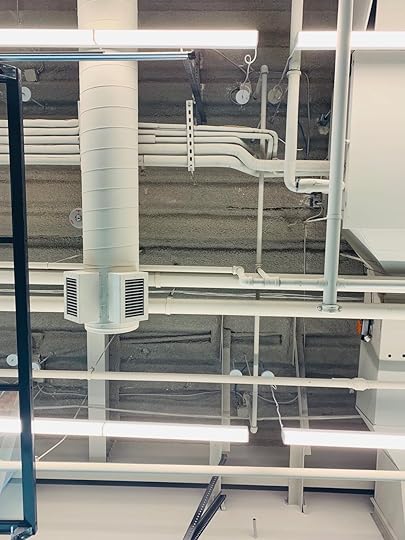
Even through the blaring beats of K. Flay in my AirPods, I can hear the clanking of the weights set after set. The smell of the rubber composite floor is an all too familiar and welcomed aroma that both feeds my ambitions and quiets my worries. I’m alone, sans one fellow lunch gym rat— the source of the clanking weight stack.
It’s my recovery day. Notice the intentionality of my words “recovery day” in lieu of any other linguistic arrangement that may express emotions of personal insecurities of being too lax taking a day off from working out.
In truth, stretching, relaxing, reflection are the more difficult tasks of my week with regards to my personal health. So here I sit—tunes blaring, the cold composite floor in contact with my recovering muscles while I quiet my brain from overthinking about life, direction, meaningful impact and the expansive ‘to-do’ list of my Monday morning.
Quieting the world around you to listen to your body and your innermost self is the one weekday ‘to-do’ that should take priority. Find a spot. Find a moment. Happy Monday.
July 19, 2019
The Cropped Instagram Photos: A Reflection on Jarring Societal Juxtapositions
Clouded by privilege, I stood at the doorstep of a popular downtown boutique coffee shop with an embarrassing amount of excitement. It had been more than twelve calendar months since I had first discovered the very Instagram-able artisan café on social media and suffice to say, I was elated when my off-site work meeting unexpectedly left me at the trendy portico of my Instagram feed.

Greeting my senses, enthusiasm, and inevitably the lens of my iPhone camera would soon be a frothy beautifully crafted and very Instagram-able oak milk latte set against the—overplayed, but still appreciated—industrial chic aesthetic of exposed bricks, subway tile and marble laid counter tops.
The clatter of spoons against ceramic, the whistle of steam from the espresso machine, the hum and beat of a crowded café were accompanying my $6 latte with a variety of vegan, gluten-free, and even CBD indulgences.
Counting my macronutrients, I opened My Fitness Pal app to log my latte and determine if I could allot in my day enough carbs and fat to treat myself to a chia seed pudding (served in a throw away miniature mason jar).
As I turned to pay, I was struck by the jarring juxtaposition from the floor-to-ceiling window view. Directly outside, serving as almost a living art exhibit of the hypocrisy of the American dream, was a tent city. Homeless, starving, and seemingly unnoticed were dozens of unfortunate men and women bustling about their day while we, patrons of the café, sat sterile, privileged, fed, and disengaged on the other side of the glass.
There are no words or easy solutions for the complexities of the reality that exist for millions of homeless women, men and children in America. Our country, as great as it is, struggles to provide adequate mental health and drug treatment for our most at-risk citizens. Working individually and collectively to better the lives of every human being should be in our hearts and on the forefront of our minds, but in truth, we are all caught on the other side of the glass--living with so much privilege that we have time to get lost in the weeds of the things that don’t matter.
Wherever you find yourself in this very moment—likely safe, dry, warm, fed, loved, and without fears of basic survival—peek above the weeds of all that doesn’t matter so that you can see what and whom needs to be seen.
February 9, 2019
7 years, 325 days: The Truth of Trauma & Owning Your Own Process
Within three minutes of an email entitled “Blood Drive- HQ” filtering into my inbox, I had, without hesitation, committed electronically a unit of my blood in three days time. Why the excitement? Why the impulse to tap a vein over my lunchbreak on a Friday afternoon?
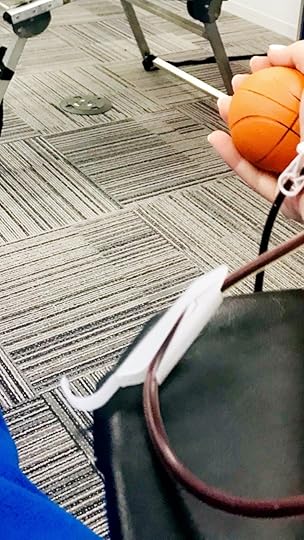
The answer can be found 7 years, 325 days ago in an entry way of blood, where I lay slumped against a wall---bewildered, gutted, and in contemplation if I was living my last moments. The dawn yet not completely broken on a Monday, my daughters asleep, and my husband at the office; I laid in wait with the cold of a lingering Winter, yet the freshness of a new Spring, in the breeze from the opened door.
I can still feel that cold air tingling on my naked skin with the juxtaposition of the warm blood--my blood—leaving my body as if it was abandoning me. I had never seen so much blood, felt so weak, been so frightened, or truly questioned if I wanted to survive the pain or irrevocable damage that my heart knew was inevitable. Those moments are imprinted on my senses on a cellular level—seemingly now and forever beneath the surface awaiting a trigger.
Repressed and logically driven into the depths of my memory vault, that day is buried. Yet, that Monday changed the course of my life. It changed me, wholly and completely. I shared with my love that day a profound loss that will always be present and only completely shared and understood with one another.
While the freight train of unbearable grief was unavoidable, my body—with units of donated blood and surgery—survived that day. I left the hospital room adorned with the white rose of what has always felt like shame and maternal failure to live another 7 years, 325 days. Those days that have been blessed with many triumphs, life fulfilling memories, and much to everyone’s surprise--and insane persistence—the birth, against all odds, of another miracle child.
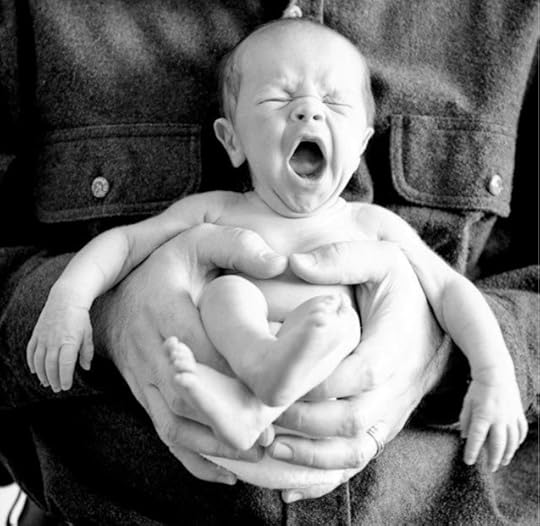
It is this fairytale ending that has always been my focus and my center of gratitude, renewal of faith, and insatiable appetite for life. So, it was much to my surprise that the day of my repayment to the universe with a blood donation was met with sadness, confusion, anxiety, and utter emotional exhaustion.
There was an absence of finality to the experience as if donating blood would close the gap to what still feels like a hole in my life. Grief crept into the space that I had created for relief. Shame and the imposter syndrome were the forefront emotions that I experienced upon someone simply expressing they were “proud” of my blood bank donation.
While my body still recovers from the donation, my mind is also desperate to process the day and to understand the contradiction of emotions. Logically, I understand—especially given my blood type—the importance of my contribution. It is literally life-saving, yet it doesn’t feel like I’ve begun to repay any debt to the universe. There is still a void in my heart, and as much as I want to repress every emotion, the day that I became a blood donor recipient was a day of trauma. And donating blood is going to be a trigger to that trauma.
And I must be okay with that… bad days happen. Trauma happens. Triggers happen. Putting one foot in front of the other to survive the bad days with optimism is still what I believe is best, but emotional repression is an avoidance, not a solution. I must to gift to myself what I gift to others—and that is the lesson here for all of us. I generously allow others to heal without judgement, a time table, a set of rules, or an arbitrary rating system of trauma and loss—yet I’ve not given myself the same latitude and compassion. I don’t allow myself to stop to feel a twinge of emotion for something that happened nearly eight years ago because in my mind that was long enough ago to “be over it”. I rate my pain and loss as insignificant because I survived; I have had many more blessed moments before and since, etc. etc. The fact remains that none of that negates the trauma.
We simply owe ourselves the same compassion and forgiveness that we give to others. We owe ourselves time… time to heal, time to process, and time to relapse. Grief is not linear, nor is affliction something we ever completely overcome.
While I process unexpected emotions and memories from an eight-year-old trauma and loss, I’m also gearing up for the next quarter when I make another blood bank donation. Next time, however, I will be armed with the knowledge, experience, and emotional preparedness from this first donation.
For information on how you can “Be a Hero” visit http://www.giveblood.org/ and “Commit for Life”



